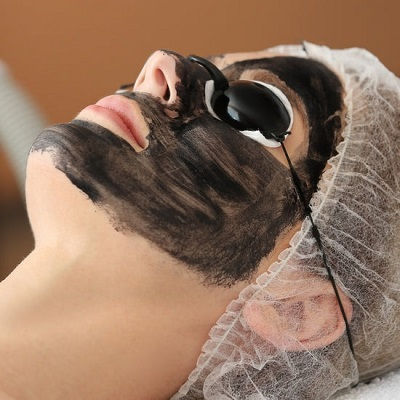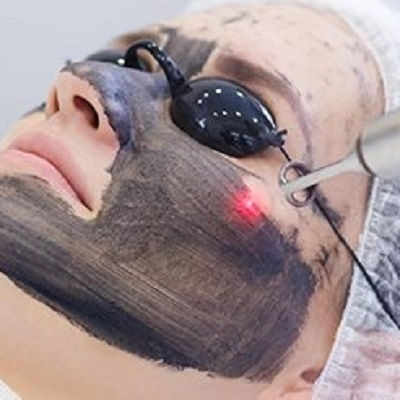Laser Carbon Peel vs. Chemical Peels: Which Wins?
- aliza khan
- May 29, 2025
- 4 min read
When it comes to skin rejuvenation, two popular treatments dominate the conversation: laser carbon peels and chemical peels. Both promise brighter, smoother skin but differ significantly in their methods, results, and suitability. For individuals in Muscat seeking the best skin renewal options, understanding the pros and cons of each can guide an informed decision. The rising popularity of Laser Carbon Peel Muscat treatments reflects their unique benefits, especially compared to traditional chemical peels.
This article explores the key differences, benefits, and limitations of both approaches to help you determine which might be the ideal choice for your skin concerns.
Understanding the Basics: What Are Laser Carbon Peel and Chemical Peels?
What Is Laser Carbon Peel?
Laser carbon peel is a modern, non-invasive facial treatment combining a carbon-based lotion and laser technology. The carbon lotion penetrates deep into pores, absorbing oils, dirt, and dead skin cells. When targeted by a laser, the carbon particles explode, exfoliating the skin gently and promoting collagen production. This process helps improve skin texture, reduce pigmentation, and tighten pores.
What Are Chemical Peels?
Chemical peels involve applying acidic solutions—such as glycolic acid, salicylic acid, or trichloroacetic acid—to the skin. These acids exfoliate the outer layers, removing dead skin cells and encouraging new skin growth. Depending on the peel's strength, chemical peels can range from mild to deep, with varying downtime and intensity.

Key Differences Between Laser Carbon Peel and Chemical Peels:
Mechanism of Action:
Laser carbon peel uses laser energy to activate the carbon mask and exfoliate the skin, while chemical peels rely on acid-based solutions to chemically dissolve damaged skin cells. The laser method is more targeted and controlled, minimizing irritation.
Depth of Treatment:
Chemical peels can be superficial, medium, or deep depending on the acid concentration. Deep peels offer more dramatic results but also come with increased recovery time. Laser carbon peel generally targets superficial skin layers, making it gentler with less downtime.
Skin Types and Sensitivity:
Laser carbon peel is suitable for most skin types, including sensitive and oily skin. Chemical peels, especially deeper ones, may not be recommended for sensitive or darker skin tones due to risks of irritation and pigmentation changes.
Benefits of Laser Carbon Peel:
Gentle Yet Effective Exfoliation:
The carbon peel effectively removes dead skin cells and excess oils without harsh chemicals, making it ideal for sensitive skin.
Reduction in Pigmentation and Pore Size:
By targeting melanin and stimulating collagen, laser carbon peel improves uneven skin tone and visibly shrinks pores.
Minimal Downtime:
Most patients experience only mild redness, with normal activities resuming immediately after treatment.
Suitable for Frequent Use:
Laser carbon peel can be safely repeated every few weeks for ongoing skin maintenance, ideal for those living in sun-exposed areas like Muscat.
Advantages of Chemical Peels:
Versatility in Treatment Depth:
Chemical peels can be tailored from light to deep, addressing various concerns from minor dullness to severe wrinkles and scars.
Cost-Effectiveness:
Generally, chemical peels are more affordable than laser treatments, making them accessible for a wide audience.
Proven Track Record:
Chemical peels have been used for decades with well-documented results for improving acne scars, pigmentation, and skin texture.
Which Treatment Is Best for Common Skin Concerns?
For Oily and Acne-Prone Skin:
Laser carbon peel excels at reducing excess oil and clearing pores, helping to prevent acne outbreaks.
For Hyperpigmentation and Sun Damage:
Both treatments can improve pigmentation, but laser carbon peel offers a gentler approach with less risk of irritation.
For Fine Lines and Wrinkles:
Medium to deep chemical peels may offer more substantial wrinkle reduction, though laser treatments stimulate collagen for gradual improvement.
For Sensitive or Reactive Skin:
Laser carbon peel’s gentle nature generally suits sensitive skin better, while chemical peels may cause irritation if not carefully selected.
Treatment Experience and Recovery:
Comfort During Procedure:
Laser carbon peel is mostly painless, with a warm sensation as the laser activates the carbon. Chemical peels can cause tingling or burning, especially with stronger acids.
Post-Treatment Care:
Both treatments require sun protection and moisturizing. Chemical peels often involve visible peeling and redness for several days, while laser carbon peel recovery is quicker.

Cost Comparison and Accessibility in Muscat:
Laser carbon peel treatments tend to be priced higher due to advanced technology and precision. However, many in Muscat consider the faster recovery and gentle nature worth the investment. Chemical peels remain a budget-friendly option, though risks and downtime increase with strength.
Why Laser Carbon Peel Muscat Is Gaining Popularity:
Residents of Muscat face intense sun exposure that exacerbates pigmentation, enlarged pores, and oily skin issues. The laser carbon peel offers a practical solution by combining exfoliation with pore cleansing and collagen stimulation, all with minimal downtime suited for busy lifestyles. This has positioned it as a favored choice for those seeking both immediate and long-term skin improvements.
Combining Both Treatments for Enhanced Results:
In some cases, combining mild chemical peels with laser carbon peels can maximize skin rejuvenation benefits, addressing a broader spectrum of concerns from surface dullness to deeper pigmentation.
Final Verdict: Which Wins?
Both laser carbon peel and chemical peels offer unique advantages. For individuals prioritizing minimal downtime, gentle exfoliation, and suitability for sensitive or oily skin, laser carbon peel stands out as the superior choice, especially in climates like Muscat’s. On the other hand, chemical peels remain valuable for those needing deeper skin resurfacing or more dramatic results and who can accommodate longer recovery.



Comments